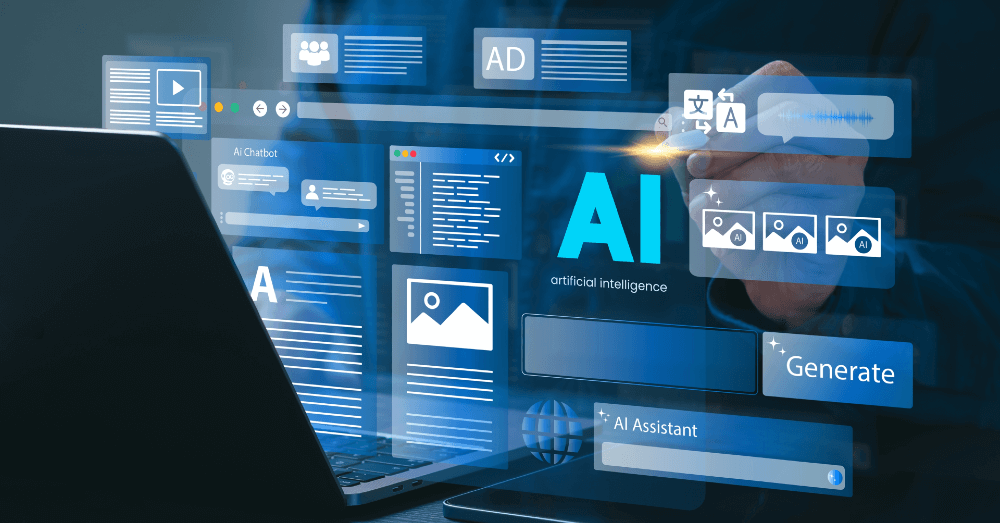What are your search habits? Are you performing more AI searches or using traditional search methods? Here’s what AI vs traditional search is uncovering.
Here’s something that might surprise you: despite all the talk about AI replacing Google, the opposite seems to be happening. New research shows that even the heaviest ChatGPT and Claude users are still hitting up Google search constantly. This is taking place for about 95% of people still using search engines regularly. It turns out that when you get really into AI tools, you don’t stop searching the web.
Going down a rabbit hole
Instead of using Google less when you use AI tools, you actually search more. Think about it: you ask ChatGPT something, and it gives you an answer. Then you hop over to Google to fact-check it or dig deeper. Maybe the AI mentions something interesting that sends you down a rabbit hole of traditional searches. Instead of AI killing search, it’s creating this weird symbiotic relationship where both tools feed off each other. The data basically shows that all those predictions about Google’s demise were way off base. Google and other search engines don’t seem to be threatened by AI in any way.
Does AI always give the right answers?
Can you utilize AI to get different answers to the same question when asked multiple times? Yes, you can. When comparing AI vs traditional search, the human and time elements are missing. Unless you tell AI to use a specific source that you know is reputable, you’ll receive answers that can come from anywhere on the internet. This leads to many users turning to traditional search methods to fact-check the AI system and what it offers. Despite possible wrong answers or poor sources, AI is much faster than traditional search methods, which means you’ll have a good place to begin when you search using AI before you dig deeper.
Intent vs key terms
Traditional search engines have begun including AI tools to help users find the right information based on user intent rather than strictly based on keywords. This is how the two search types are combining together, but it’s not how they work separately. As separate entities, AI tools can deliver search results based on user intent instead of keywords. Traditional search engines use key term searches to provide results and index information. These search engines have grown and evolved to ensure the most authoritative results are listed first, but the key terms still get the ball rolling for traditional search queries.
Things to watch out for with AI
Using AI vs traditional search methods allows you to develop an assistant that can make your life a bit easier, but there are some things you should watch out for with AI, other than simply the possibility of incorrect information being returned in searches. Here are a few things you should watch out for when using AI:
Bias
AI bias has some consequences, but many are unintended. The more you use an AI system for searching for information or in your daily life, the more it becomes programmed to predict your needs and desires, ensuring it can provide you with the information you want. Unfortunately, biased outcomes can be wrong and potentially harmful. These biases, such as discriminating factors, cause inaccurate information to be returned during AI searches.
Cybersecurity Threats
Some people have begun to manipulate AI tools to clone voices, generate fake identities, and create phishing emails. These actions are only intended to scam, hack, and steal a person’s identity or compromise their privacy and security. This can lead to trouble trusting information, which makes a traditional search necessary to ensure AI hasn’t bene used to manipulate the situation. These threats and security issues can be problematic for many companies.
AI doesn’t necessarily improve job performance
Some people have expressed concerns about AI replacing them in the future, but AI search tools and programming isn’t even good enough to make their jobs better yet. Only about 37% of people feel that AI will improve their job and only 34% of people anticipate it will boost the economy. Overall, AI could be a great tool for the future, but its not likely to replace people or make our lives significantly better for several years or a few decades.
Entertainment improvements
One of the greatest challenges of using AI in the entertainment industry is the loss of the human element. It’s already challenging enough for some people to enjoy movies that are heavily enhanced with CGI technology, but adding AI to the mix removes some of the personality and human element of entertainment. Across generations, the numbers are split, with nearly 59% of Gen Z expecting AI to improve entertainment options, while only 40% of Baby Boomers feel this could occur. AI can be useful in entertainment but it must not replace the human element.
Medical advice should not come from AI
Many people have turned to search engines for medical information when they feel something is amiss. When considering AI results vs traditional searches, it seems like AI could be dangerous to many people looking online for medical information. If ChatGPT can return bad information regarding simple things, such as the best cars to drive, it can certainly provide terrible medical advice and cause some people to panic unnecessarily.
This post may contain affiliate links. Meaning a commission is given should you decide to make a purchase through these links, at no cost to you. All products shown are researched and tested to give an accurate review for you.
